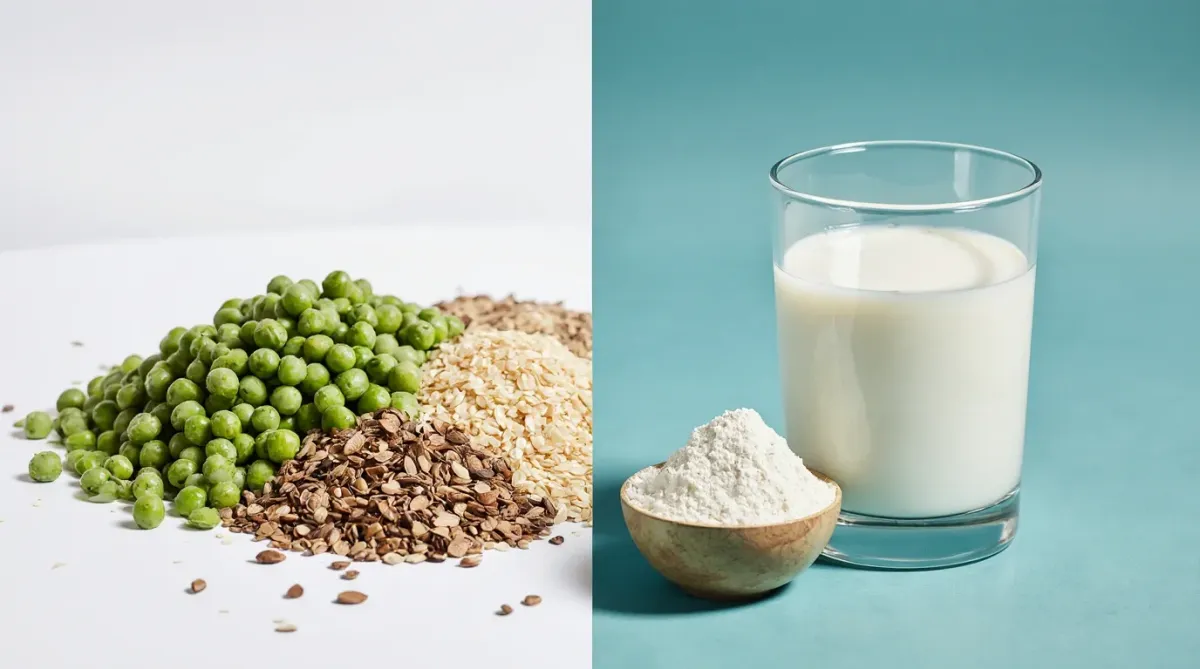
All Protein Powders Aren’t Created Equal—Here’s Why
Unless you've been living under a rock, you know that protein and protein powders are in the nutritional spotlight.
Whey, pea, hemp, soy....you can scoop just about anything into a blender these days. At first glance, they all look similar, but.....
...not all proteins work the same way when it comes to your muscles.
The biggest difference between plant-based and animal-based powders like whey comes down to their building blocks, amino acids. Among them, leucine plays the starring role.
Think of leucine as the “on” switch for muscle growth. You need about 2.5–3 grams of it at one time to trigger your body’s muscle-building machinery.
Whey protein hits that threshold easily in a single scoop.
Plant proteins usually fall short.
To get the same muscle-triggering amount of leucine, you might need to double up on pea protein—or take up to four times the serving of hemp.
Many vegan powders try to close that gap by blending different plant sources, but they often still come up short.
In one scientific literature review, whey protein was found to be better at increasing lean body mass than soy protein. Compared to pea protein in a controlled trial, whey was also better at decreasing muscle soreness after exercise.
That doesn’t mean plant proteins don’t “work.”
They can help you reach your protein goal but if building or maintaining muscle is your focus, you may need more powder (and therefore more calories) to get the same benefit you’d see from whey.
Another factor is digestibility.
Our body’s ability to absorb and utilize a protein's amino acids is measured by thePDCAAS(Protein Digestibility-Corrected Amino Acid Score).
Whey and soy protein both score a perfect 1.0 (meaning your body uses nearly all of it). Other plant proteins, like pea or hemp, score lower. You may need bigger servings to get the same usable protein.
Plant proteins are more likely to contain heavy metals
Testing found lead in 75% of 53 plant protein powders tested (including organic brands!).
Animal proteins that have undergone extra filtration, like whey protein isolate, tend to have the least heavy metal contamination due to their lack of plant ingredients.
Choose brands carefully and avoid over-relying on plant powders as your main protein source.
If you tolerate dairy, whey protein is the most effective option for supporting strength and muscle health. It’s rich in leucine, digests efficiently, and tends to be cleaner.
Plant-based powders still have their place. They can help you meet your protein needs while also providing fiber, healthy fats, and phytonutrients.
The “best” protein is the one that works for your diet, ethics, and health needs.
If your aim is to maximize muscle growth with the fewest scoops, whey is the way to go.
If you avoid dairy or prefer plant-based eating, you can still build muscle and strength, just look for blended plant powders higher in leucine and vary your protein sources.
Either way, protein powders are tools. Pair them with real food, consistent training, and recovery, and you’ll be on track no matter which scoop you choose.